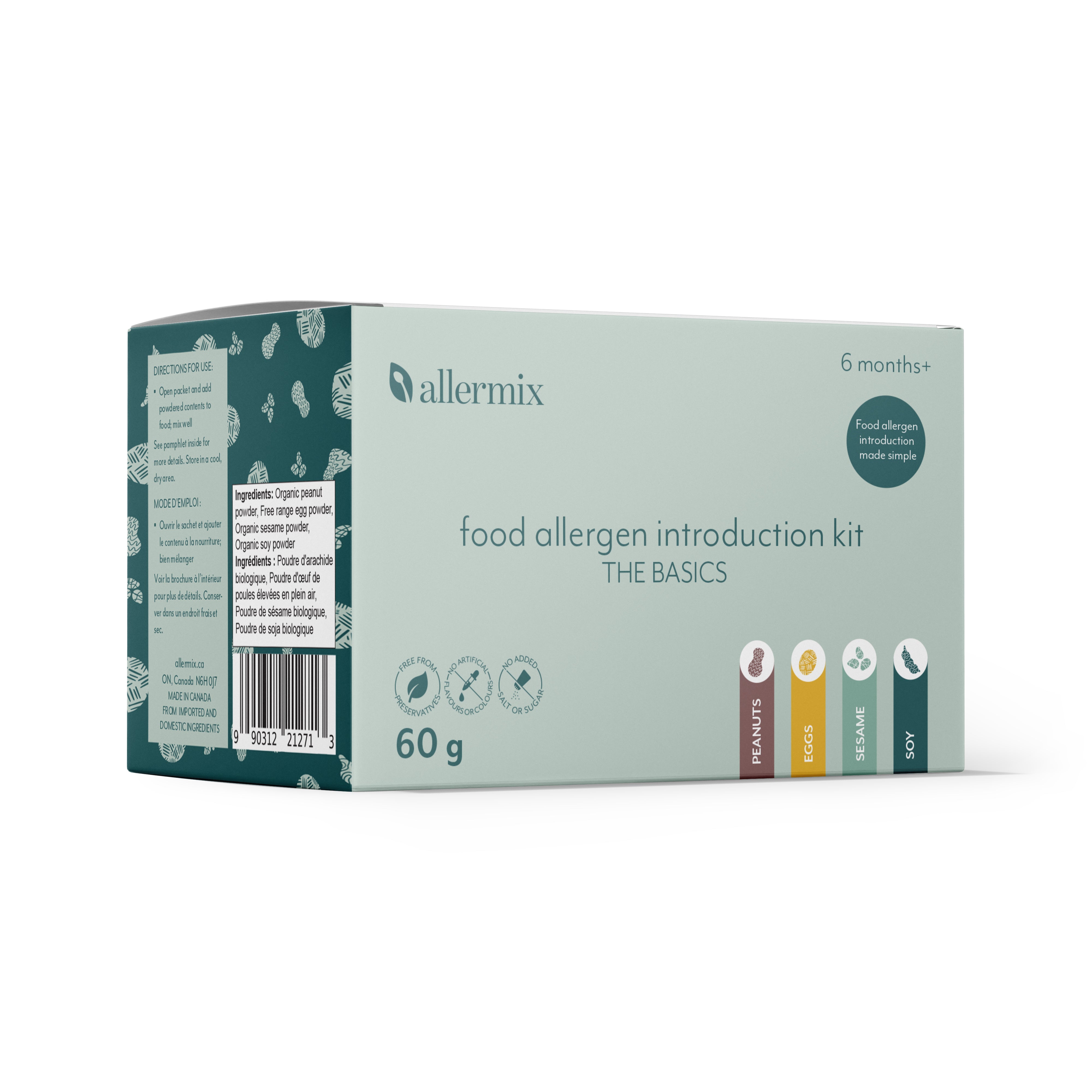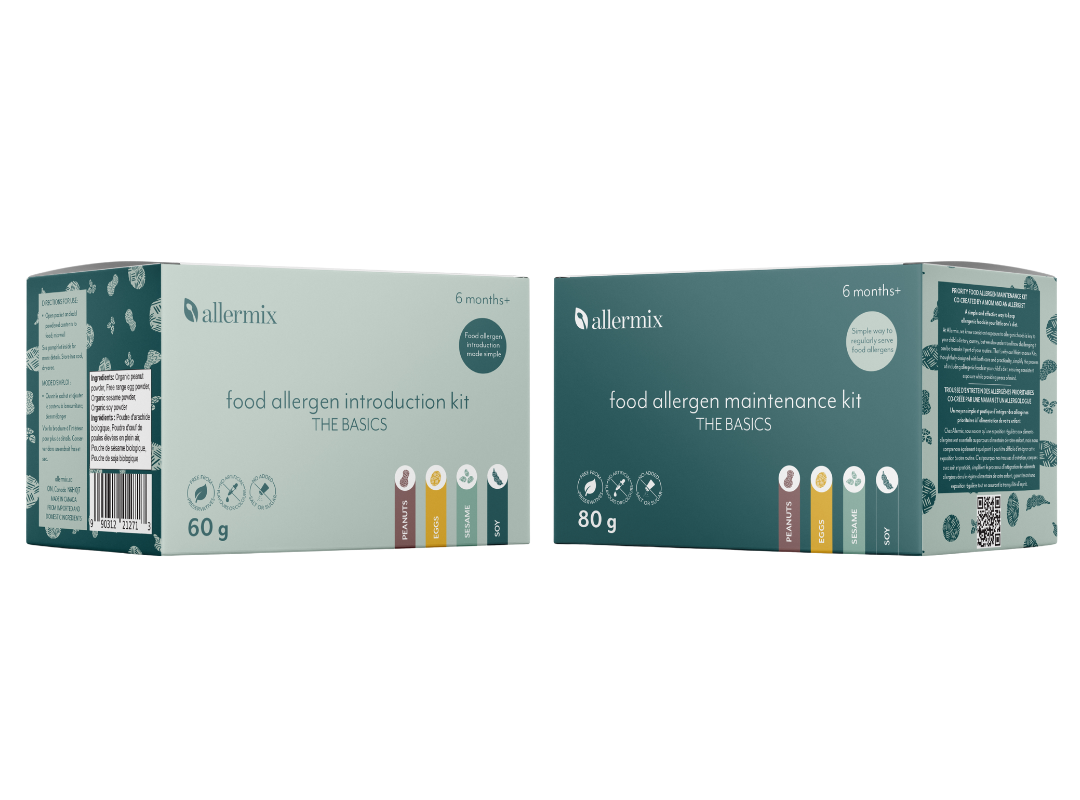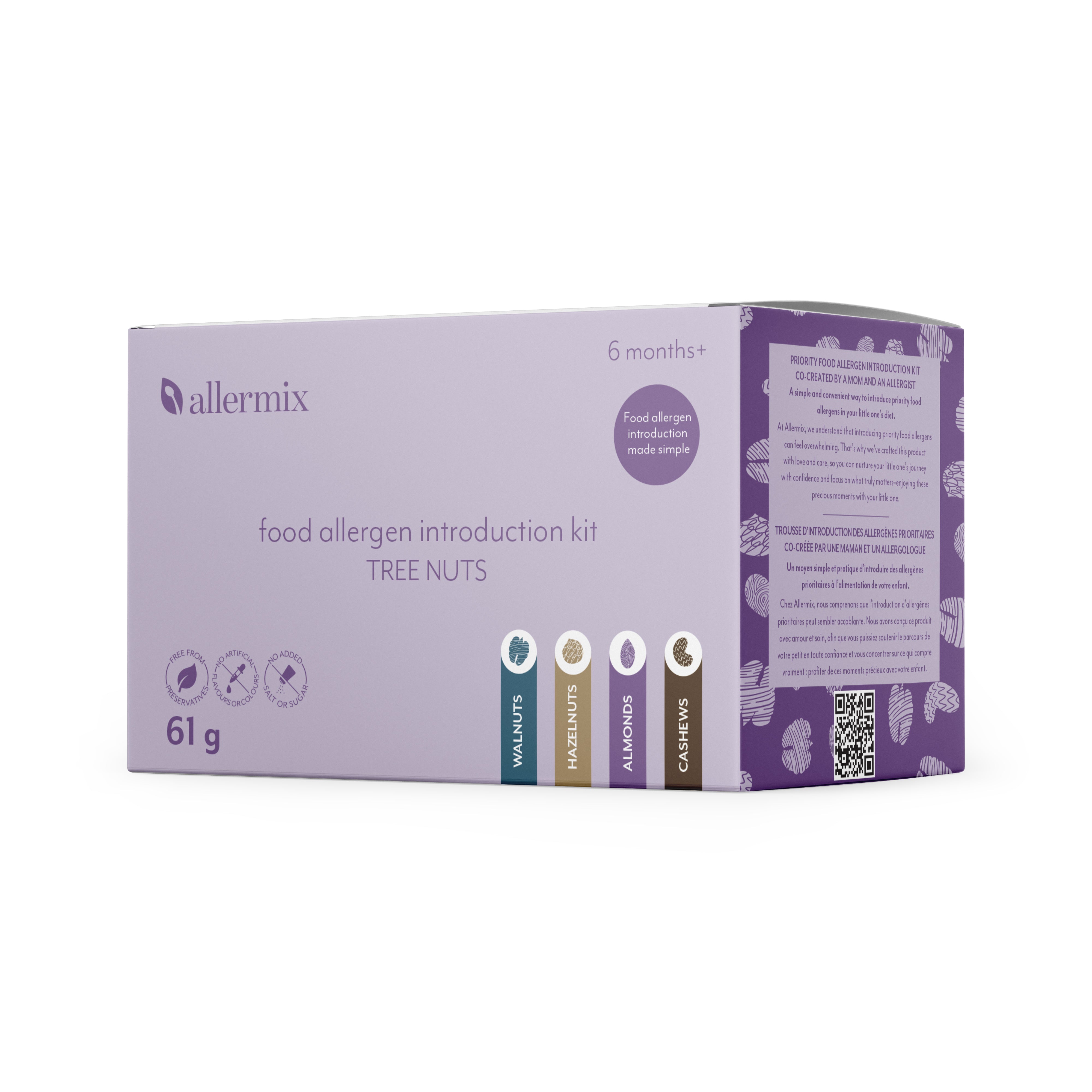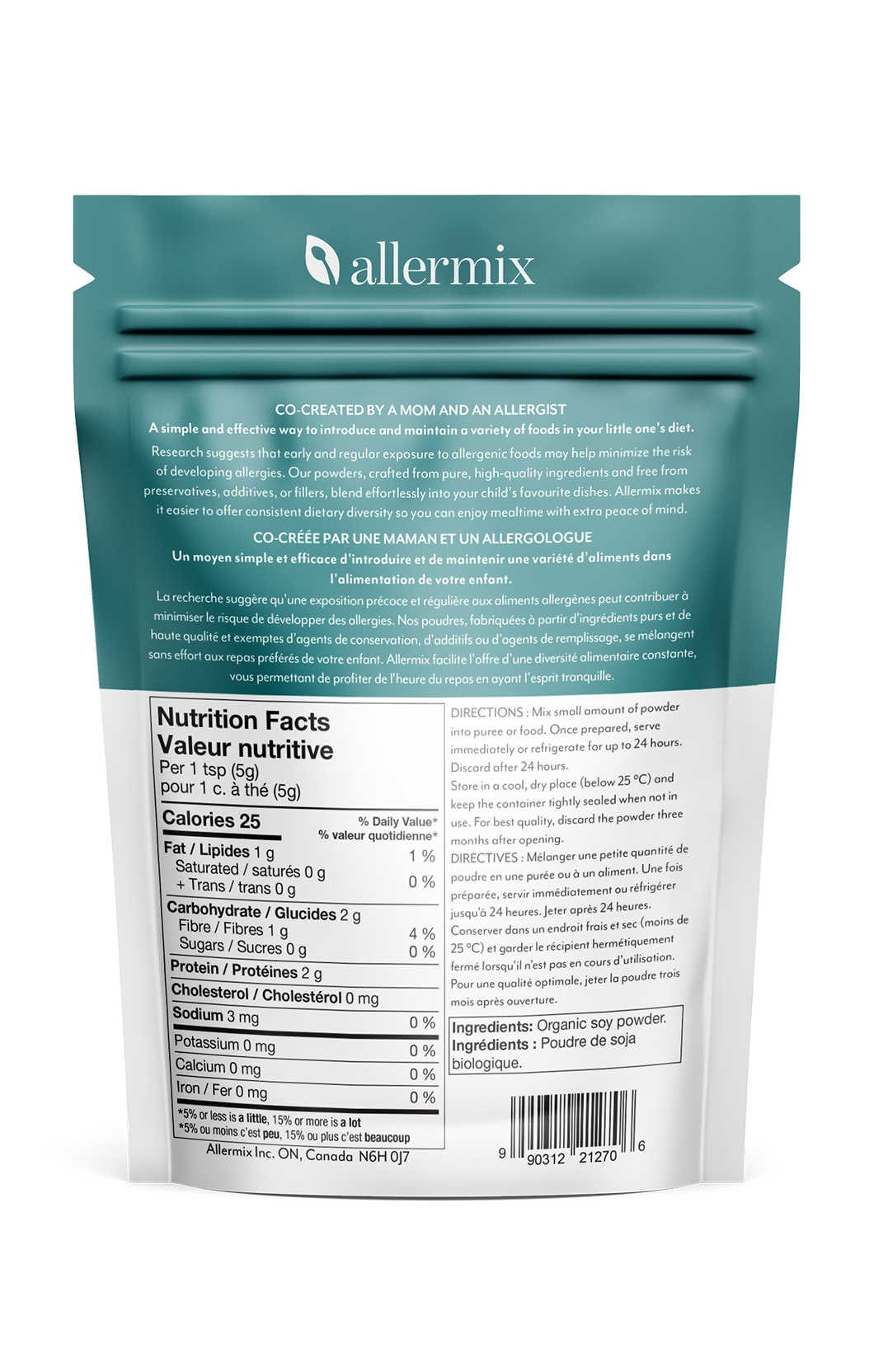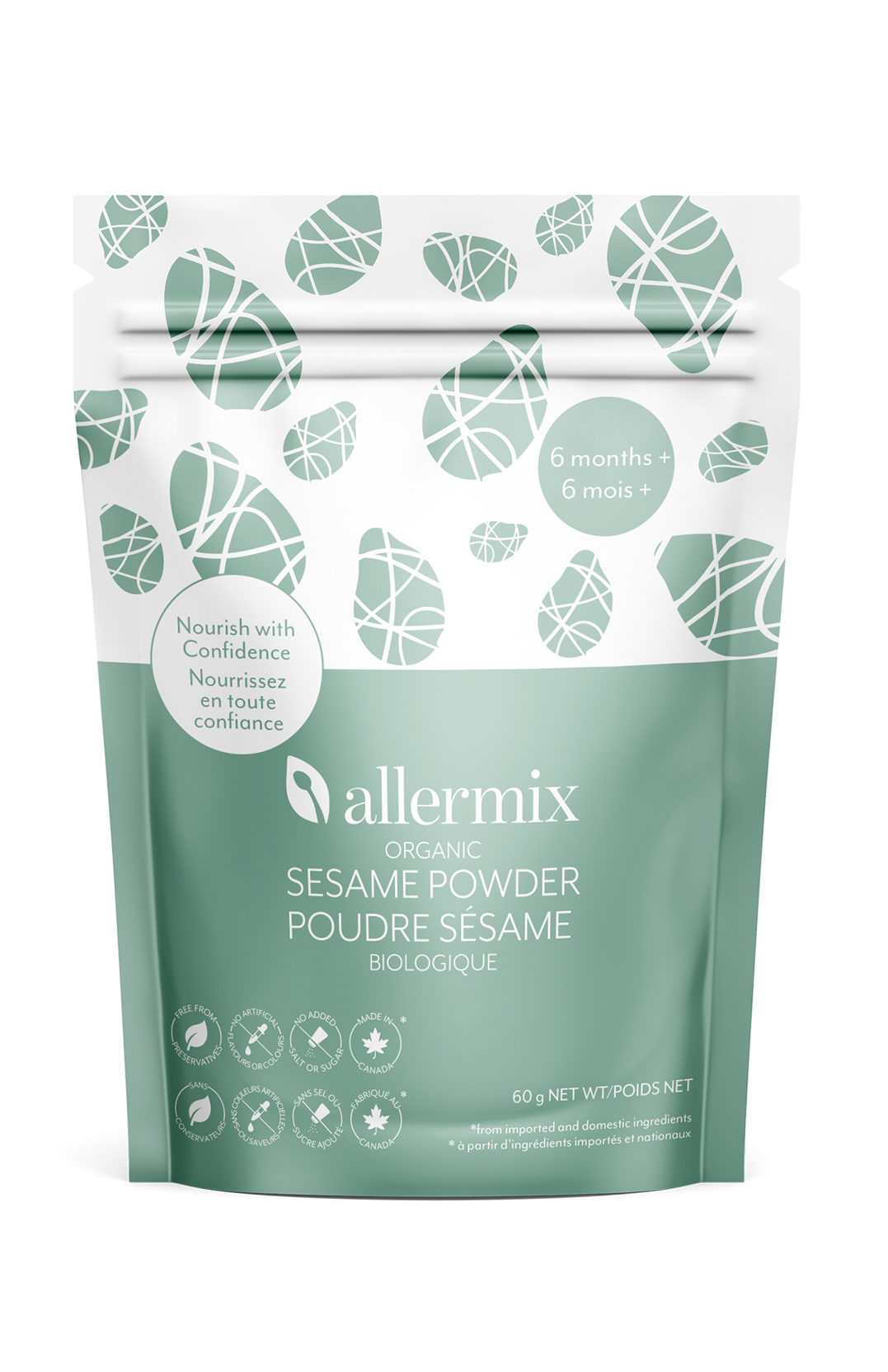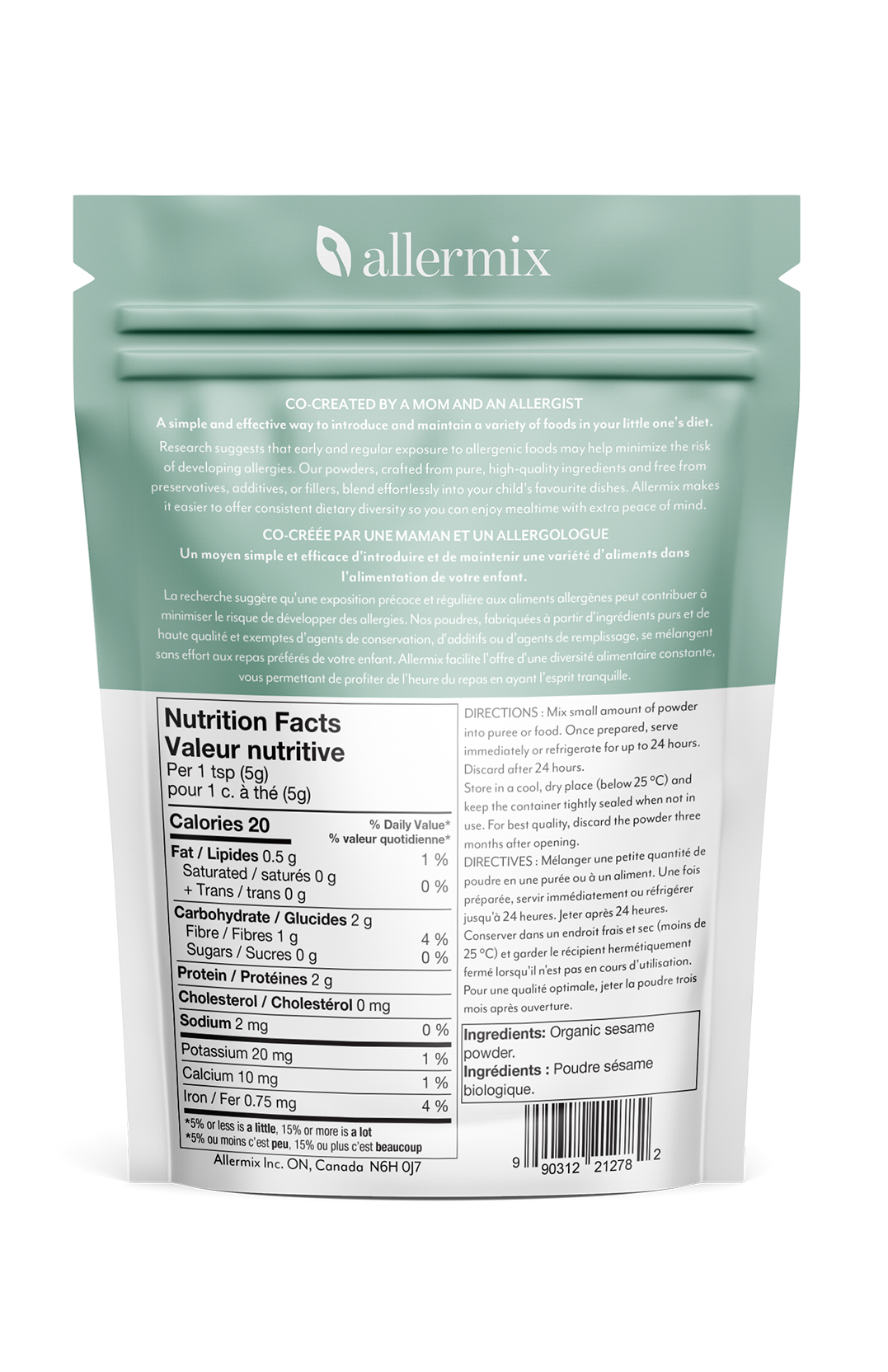Blueberry Allergy in Babies: What Parents Should Know
Reviewed by Dr. R. Zhu, MD, FRCPC, Allergist & Clinical Immunologist
Disclaimer:
This article is for general informational purposes only and is not a substitute for professional medical advice. Always consult your healthcare provider or allergist if you suspect an allergy or have concerns.
Table of Contents
- Can Babies Be Allergic to Blueberries?
- Blueberry Allergy vs. Blueberry Sensitivity
- Why Do Some Babies React to Blueberries?
- When Can I Introduce Blueberries to My Baby?
- Does a Blueberry Allergy Mean My Baby Can’t Have Other Berries?
- Can Babies Outgrow Blueberry Allergies?
- Make Allergen Introduction Easier with Allermix
- Final Thoughts
1. Can Babies Be Allergic to Blueberries?
While uncommon, some babies can develop a blueberry allergy. This occurs when the immune system treats blueberry proteins as harmful. Symptoms may include:
- Hives or rash
- Swelling of the face, lips, or eyes
- Diarrhea or vomiting
- Wheezing or nasal congestion
2. Blueberry Allergy vs. Blueberry Sensitivity
Blueberry allergy involves the immune system, potentially leading to serious reactions. Blueberry sensitivity is non‑immune and may look like:
- Redness or irritation around the mouth
- Mild digestive upset
- Diaper rash
Cooking or steaming blueberries can reduce these sensitivities in some babies.
3. Why Do Some Babies React to Blueberries?
Blueberries contain salicylates and other compounds that may irritate sensitive skin. For many infants, having a barrier cream (ex: petroleum jelly) can make blueberries more tolerable.
4. When Can I Introduce Blueberries to My Baby?
According to Canadian guidelines, you can begin introducing fruits like blueberries around 6 months of age (not before 4 months). When offering blueberries:
- Use mashed, cooked, or blended forms for babies
- Avoid whole berries due to choking risk
- Wait 2 hours to monitor for symptoms
- Continue feeding weekly to support tolerance
5. Does a Blueberry Allergy Mean My Baby Can’t Have Other Berries?
Not always. Blueberries are less likely to cross-react with other berries like strawberries or raspberries. However, introduce new berries one at a time and monitor for symptoms.
6. Can Babies Outgrow Blueberry Allergies?
Yes. Many infants with mild blueberry allergies or sensitivities outgrow them over time. An allergist can help guide future reintroductions if needed.
Make Allergen Introduction Easier with Allermix
Blueberries aren’t on Canada’s priority allergen list, but a structured approach is still important. If you're feeling overwhelmed by priority allergen introduction, Allermix kits, developed by a mom and an allergist, provide step‑by‑step guidance and pre‑measured servings to make the process stress‑free.
Final Thoughts
Most babies tolerate blueberries well. By going slow, preparing them properly, and observing for any signs of reaction, you can introduce this nutritious fruit into your baby’s diet with confidence.









